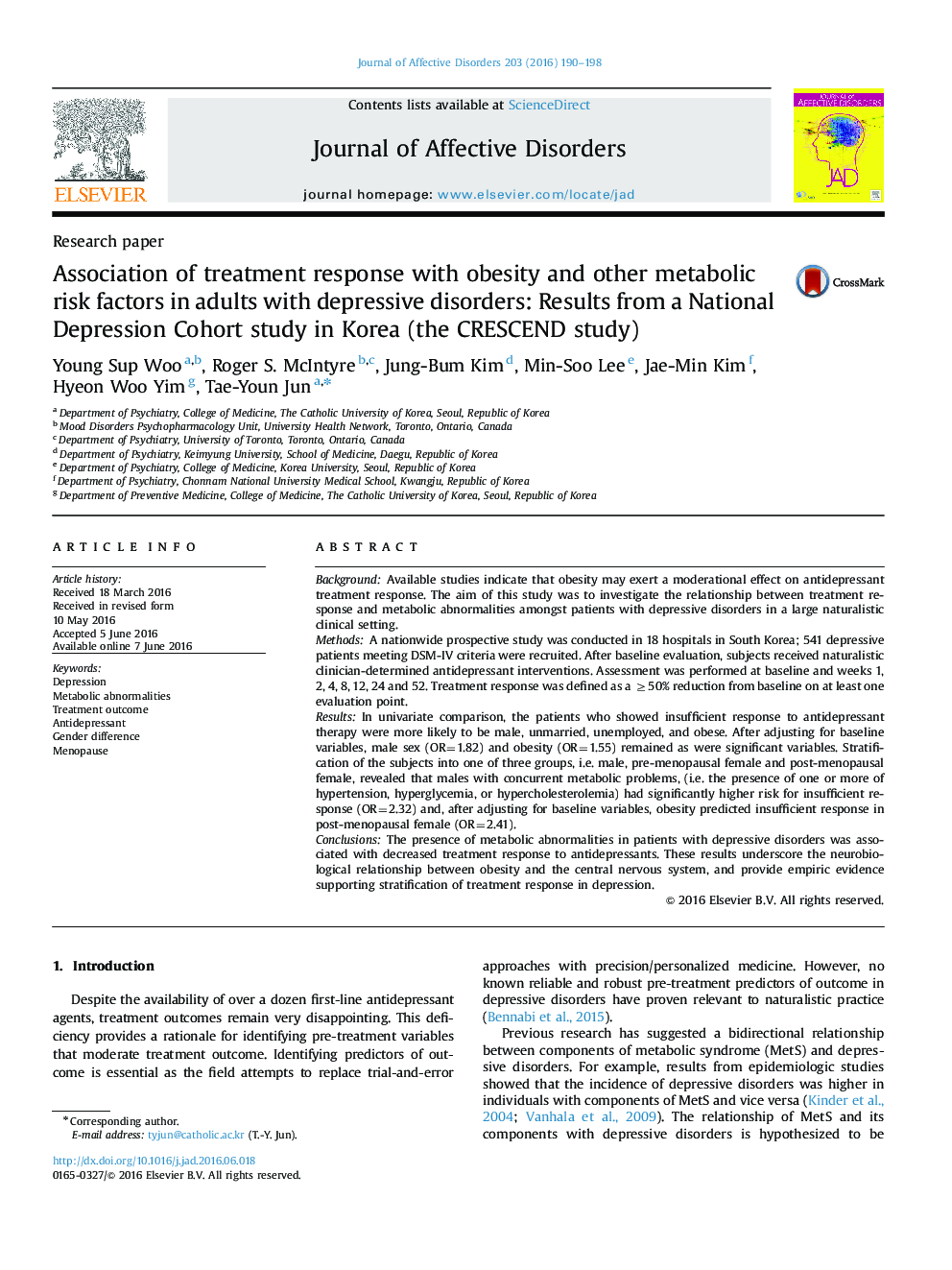| کد مقاله | کد نشریه | سال انتشار | مقاله انگلیسی | نسخه تمام متن |
|---|---|---|---|---|
| 6229872 | 1608122 | 2016 | 9 صفحه PDF | دانلود رایگان |

- Male sex and obesity predicted poor treatment outcomes in patients treated with antidepressants.
- Male with concurrent metabolic problems had significantly higher risk for poor antidepressant treatment outcomes.
- Obesity predicted insufficient response in post-menopausal female patients with depressive disorders.
BackgroundAvailable studies indicate that obesity may exert a moderational effect on antidepressant treatment response. The aim of this study was to investigate the relationship between treatment response and metabolic abnormalities amongst patients with depressive disorders in a large naturalistic clinical setting.MethodsA nationwide prospective study was conducted in 18 hospitals in South Korea; 541 depressive patients meeting DSM-IV criteria were recruited. After baseline evaluation, subjects received naturalistic clinician-determined antidepressant interventions. Assessment was performed at baseline and weeks 1, 2, 4, 8, 12, 24 and 52. Treatment response was defined as a â¥50% reduction from baseline on at least one evaluation point.ResultsIn univariate comparison, the patients who showed insufficient response to antidepressant therapy were more likely to be male, unmarried, unemployed, and obese. After adjusting for baseline variables, male sex (OR=1.82) and obesity (OR=1.55) remained as were significant variables. Stratification of the subjects into one of three groups, i.e. male, pre-menopausal female and post-menopausal female, revealed that males with concurrent metabolic problems, (i.e. the presence of one or more of hypertension, hyperglycemia, or hypercholesterolemia) had significantly higher risk for insufficient response (OR=2.32) and, after adjusting for baseline variables, obesity predicted insufficient response in post-menopausal female (OR=2.41).ConclusionsThe presence of metabolic abnormalities in patients with depressive disorders was associated with decreased treatment response to antidepressants. These results underscore the neurobiological relationship between obesity and the central nervous system, and provide empiric evidence supporting stratification of treatment response in depression.
Journal: Journal of Affective Disorders - Volume 203, October 2016, Pages 190-198